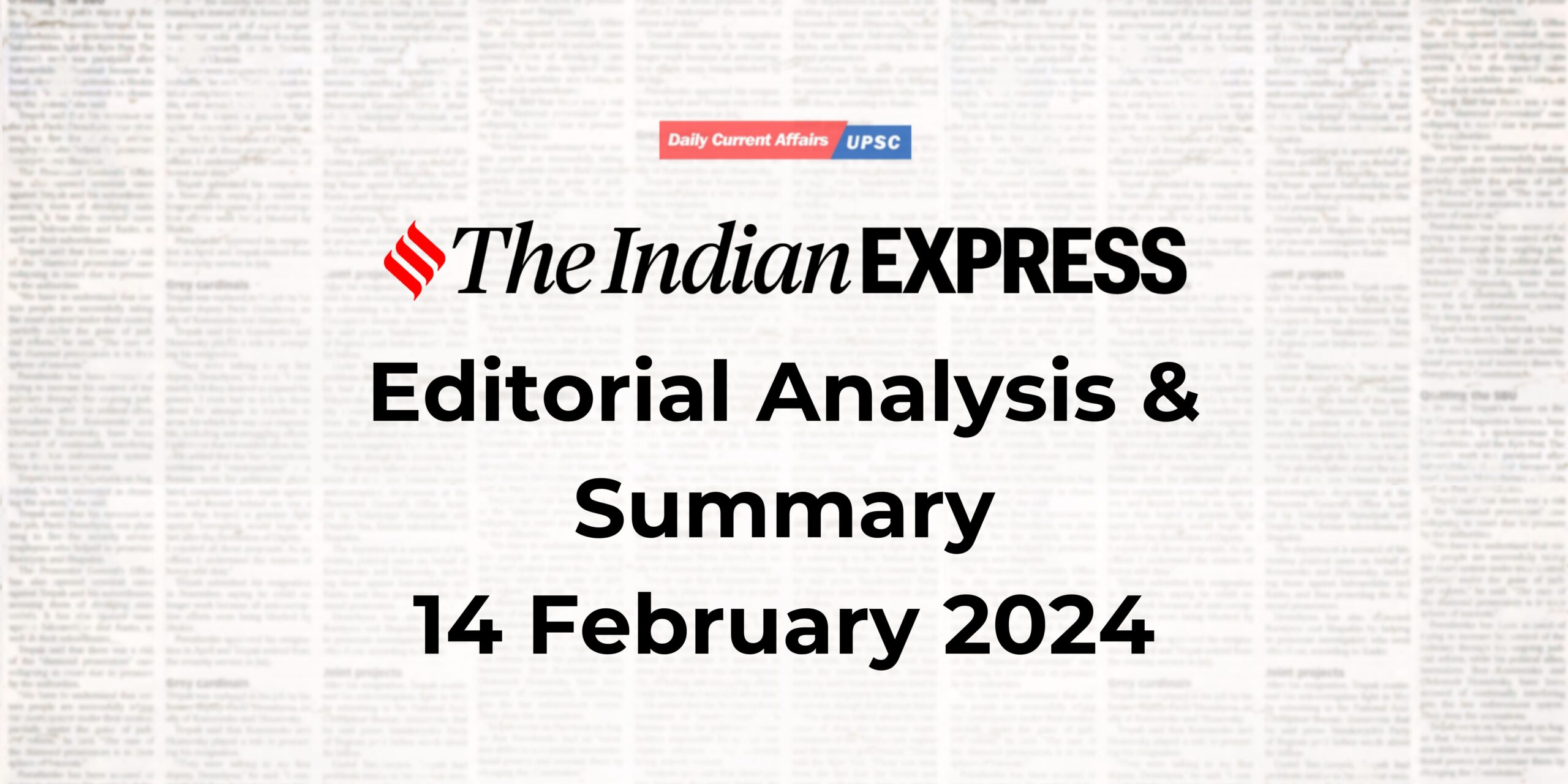1. An Arabian Valentine
Topic: GS2 – International Relations – Bilateral Relations
Given the changing nature of India’s ties with the Gulf, this topic is pertinent to both the Prelims and Mains.
| Context: |
| – Towards the end of his second term as prime minister, Narendra Modi traveled to the United Arab Emirates (UAE) and Qatar, which resulted in two historic occasions: the opening of the Bochasanwasi Akshar Purushottam Swaminarayan (BAPS) temple in Abu Dhabi and the release of eight Indian ex-navy personnel who were being held in Doha on espionage charges. – These incidents highlight a critical turning point in Modi’s diplomatic endeavours and represent a substantial shift in India’s Gulf relations during the previous ten years. – This essay explores the diplomatic, political, religious, economic, and security aspects that are propelling this change. |
Diplomatic Engagement:
- India has significantly expanded its diplomatic ties with the Middle East under Modi’s direction, despite the region’s historical lack of priority in Indian foreign policy.
- Modi has increased India’s diplomatic presence in the Middle East by visiting the region fifteen times since taking office in 2014, a significant increase compared to the few trips made by his predecessors.
- Notably, his trips to Qatar and the United Arab Emirates are momentous occasions that demonstrate his proactive approach to fostering ties with Gulf leaders.
Personal Diplomacy:
- Bilateral ties have advanced thanks in large part to Modi’s recognition of the value of personal relationships with Gulf leaders.
- Modi has raised India’s profile in the Gulf by cultivating close ties with the monarchs there and using political wrangling and mutual trust.
- The focus on personal diplomacy highlights a change in India’s strategy towards the Gulf countries.
Political Engagement:
- India’s involvement with the Gulf has expanded beyond token acts of solidarity with Arab causes to include a deeper political discourse.
- With the creation of alliances like the India-Middle East-Europe Economic Corridor and the I2U2 group, India is moving away from its previous strategy of taking declarative stances and toward a more active role in regional geopolitics.
Religious Lens:
- Diplomatic progress was hampered by India’s historical propensity to see the Gulf through a religious prism, which was made worse by Pakistan’s outreach in search of Islamic solidarity.
- Nonetheless, Modi’s government has shown a practical approach by eschewing the fixation with Pakistan and concentrating on promoting goodwill and collaboration with Gulf countries.
Religious Tolerance and Social Reform:
- The building of the Swaminarayan temple in Abu Dhabi is part of a larger trend in the Gulf that is toward greater religious tolerance and social reform. This movement has the ability to combat religious extremism that comes from the area and promote harmony amongst various communities.
Economic Partnership:
- The transformation of India’s relationship with the Gulf from a transactional to a strategic partnership in the economy has been fueled by the Gulf’s rise to prominence as a major hub for global capitalism.
- Modi’s focus on using Gulf cooperation to boost India’s economic modernization is in line with the Gulf’s efforts to diversify its economy beyond oil and offers a plethora of chances for cooperation across a range of industries.
Security Collaboration:
- Although there remains unrealized potential in the defense sector, cooperation between India and the Gulf countries in counterterrorism has increased dramatically.
- India’s importance as a regional security provider grows as Gulf countries look to diversify their defense alliances, calling for closer military cooperation and cooperative development projects.
Conclusion:
- The recent interactions that Modi has had in the Gulf represent the pinnacle of a ten-year shift in India’s ties with the area.
- India has established a comprehensive partnership with Gulf countries that is marked by mutual respect, cooperation, and shared strategic interests by giving priority to diplomatic, political, economic, and security dimensions.
- Opportunities abound for additional cooperation to advance prosperity and stability in the Western Indian Ocean and beyond as India looks to deepen its engagement in the region.
| Why is the Gulf Region Crucial for India? |
| – India has long enjoyed cordial ties with countries such as Iran, and among its closest regional allies is the smaller but gas-rich nation of Qatar. – India has friendly relations with most of the Gulf countries. – The two primary forces behind the connection are trade and the extraction of gas and oil. – Qatar is the source of 14% of India’s total natural gas imports. – Two other factors are the vast number of Indians working in the Gulf countries and the remittances they send home. – According to a research study published by the Reserve Bank of India, remittances from the United Arab Emirates to India in the fiscal year 2020–21 totaled USD15.40 billion, or 18% of all inward remittances to India. |
| PYQ: Which of the following is not a member of ‘Gulf Cooperation Council’? (2016) (a) Iran (b) Oman (c) Saudi Arabia (d) Kuwait Ans: (a) |
| Practice Question: Talk about the elements that have influenced India’s ties with the Gulf in the past ten years. (10 m / 150 words) |



Leave a Reply